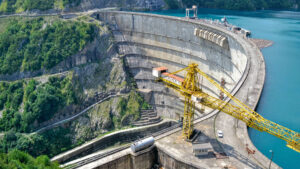Construction planning and scheduling: a quick intro
Construction planning and scheduling are key aspects in integrating all your construction activities and phases needed to complete a given construction project at a given budget and time frame. Although having individual functions, planning and scheduling are inseparable when it comes to successful project management.
Construction planning essentially covers the choosing of relevant policies, procedures, and processes to achieve your project goals. Construction scheduling adapts your construction project action plans for scope, time, cost, and quality into a functioning calendar. This process of adaptation of the project specifications including requirements for resources (labour, equipment, materials, etc.), communications, risks, and procurement into an operational workflow system is critical for your project team.
Together with your project plan and budget, your schedule becomes your central tool for managing your projects. Additionally, having an integrated or coordinated cost-time schedule functions as your foundation for monitoring and controlling activities all throughout your project’s life cycle.

What is construction planning?
Construction planning is essential in managing and executing your construction projects as it involves selecting the technology, defining the work tasks, estimating the required resources and extent of individual tasks, and identifying possible interactions and workflows among different activities.
An efficient construction plan is fundamental in setting your budget and schedule for the entire work needed. Creating and developing a construction plan is a highly challenging and critical task in construction management.
You have to develop the technical aspects and on top of that, you have to make organisational decisions about relationships between project stakeholders and even the subcontractors you will have to include.
However, it isn’t enough just to track and use construction data for a single project. Real estate developers especially benefit from storing their data over a long period. For example, one of the best reasons to maintain CRE data (or commercial real estate data) is because it allows for better decision-making.
According to The Constructor, a civil engineering informational resource website, there are three major types of construction project planning:a





